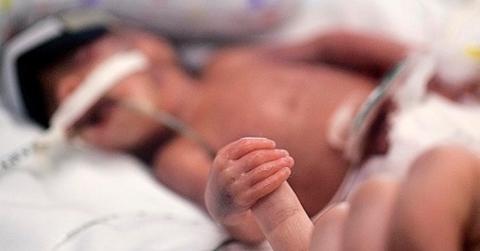
J.K. Rowling found out her books helped save this baby's life. Her response was magic
By Kelley Benham FrenchOct. 12 2019, Updated 10:44 a.m. ET
On the worst night, when our 1-pound daughter was fading in the darkness of her incubator, my husband opened a book and began to read aloud.
"Chapter One: The Boy Who Lived."
He needed to say those words. I thought it was strange that he’d chosen the first book in a seven-volume series, a series that totals more than 4,000 pages, for a little girl who might not survive the night.
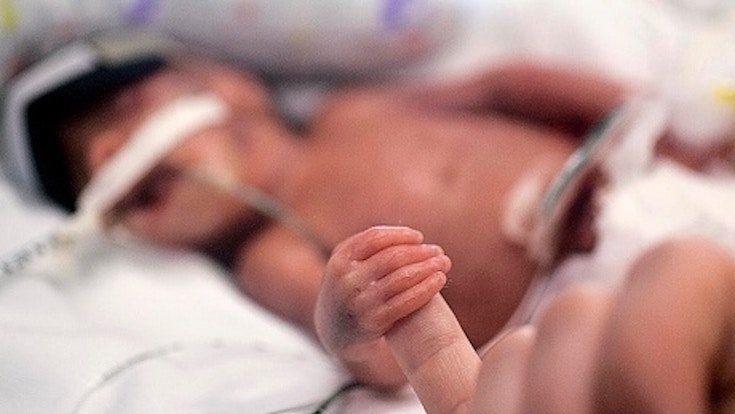
Juniper in the NICU.
"How about 'Goodnight Moon'?" I offered. "That’s a good book."
Tom saw it all more clearly than I did. He wanted Juniper, born barely viable at 23 weeks gestation, to hear a story about children who could fly. He wanted to read to her about a baby who survived the most powerful evil in the world because his mother stood by his crib and protected him with her life.
In our family, the Harry Potter books are dog-eared and worn.
My husband wanted to initiate our daughter into our tribe. My stepsons, Nat and Sam, grew up reading the books criss-cross applesauce underneath restaurant tables.
They played Quidditch on rollerblades and made wands out of chopsticks and string. On their 11th birthdays, they began checking the mailbox for their invitations to Hogwarts, clinging to the hope it could all be real. J.K. Rowling’s stories, along with the Springsteen canon, made up our shared mythology.
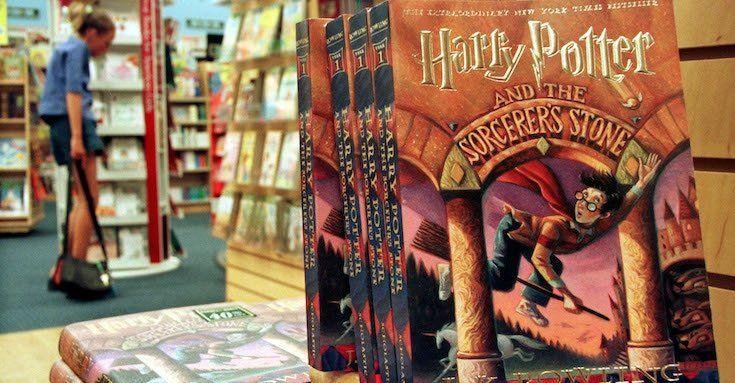
Now, as Tom held that faded book, the dust jacket long lost, he was reaching out to our daughter with a protective incantation of love and belonging.
Stories were invented to conjure meaning from randomness. They give us our history, even our identity. It made no sense that Juniper came crashing into the world 16 weeks early and the size of a kitten.
It made no sense that machines could keep her alive or that she could be snatched away. It made no sense to parent a baby in a plastic box, but that was what we learned to do.
"Stories are a promise," Tom told me when he’d had time to think it through. "They are a promise that the ending is worth waiting for."
Juniper didn’t understand a word of the story, of course.
But she could tell us, by the monitor pinging at her bedside, that she loved the parts about Hermione and that she hated the gruff voice of Hagrid the half-giant.
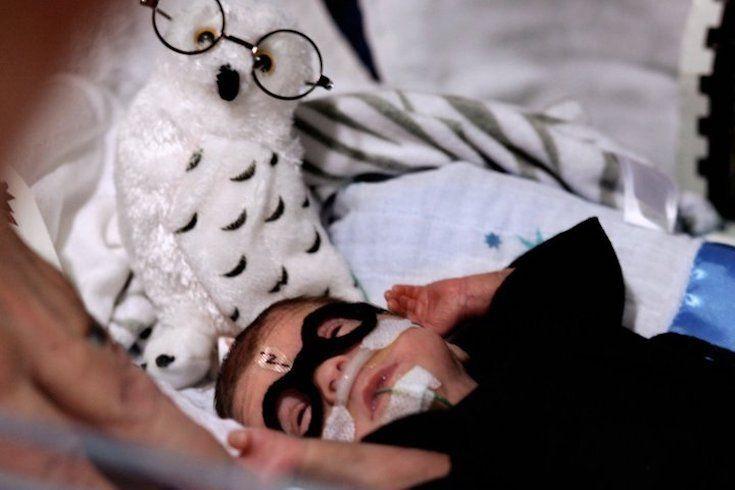
Juniper in the NICU.
When Tom read to her, she breathed better, held her temperature better, seemed generally more content. Tom read every paragraph in a soothing, sing-song voice, and when he stopped, her oxygen levels would plummet and the alarms would blare.
"Keep reading!" the nurses would shout.
He was nearly finished with book one when Juniper had another awful night. We were rushing to the hospital when he started crying at the wheel. "What if she never hears the end of the story?" he said. "What if she never learns how it ends?"
Five years later, Juniper is a wild and joyful kindergartner. And one day this spring, while she was off at school, a large box arrived at our house.
The shipping label showed an address of Mailboxes, Etc. in Edinburgh. I waited until Juniper got home to open it.
"Is dat for me?" she asked. She didn’t notice my shaking hands.
I hadn’t told her that a month or so earlier I’d gotten a Twitter message from Jo Rowling. She said she’d heard about Juniper on an episode of Radiolab and had been jolted when she’d heard Harry’s name. She said that she’d cried and that she wanted to send us something.
When I saw the message from Rowling the first time, I screamed. Then I tried to seize the moment to tell her what she’d already given us. I’m sure I didn’t capture it.
I told her that her books brought our family together in midnight lines that snaked through Walmart, where we always bought four copies so we wouldn’t have to share. In our all-night family readings, we raced each other to finish but then slowed in the last chapters because we couldn’t stand for them to end.
When Juniper arrived and Tom started reading, those stories helped me see that being a parent wasn’t something I might get to do someday, it was something I could do right now, for however long it lasted.
They helped Tom and I write the story of our own lives — of who we were in those long, wrenching months. They gave a generation of children the most powerful gift imaginable: the lessons of love and friendship and bravery and decency and the ability to apparate to a better place with the turn of a page.
They gave our family its sacred text. They guided us through the dark.
I sent Rowling this photo:
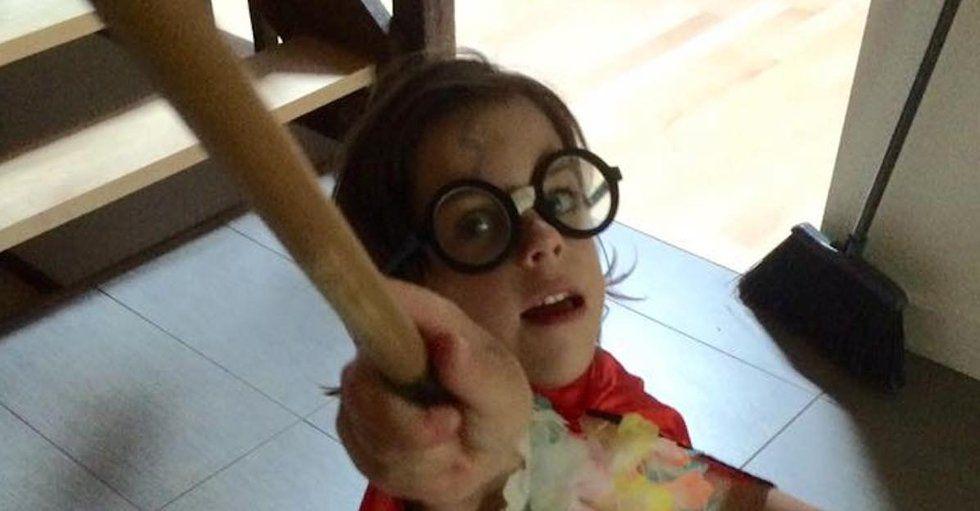
Juniper, all grown up!
And now, I unwrapped Rowling’s books from the box, sent all the way from Scotland, and handed them to my daughter.
"She loves me," she said, because she already knew it. She hugged the books tight.
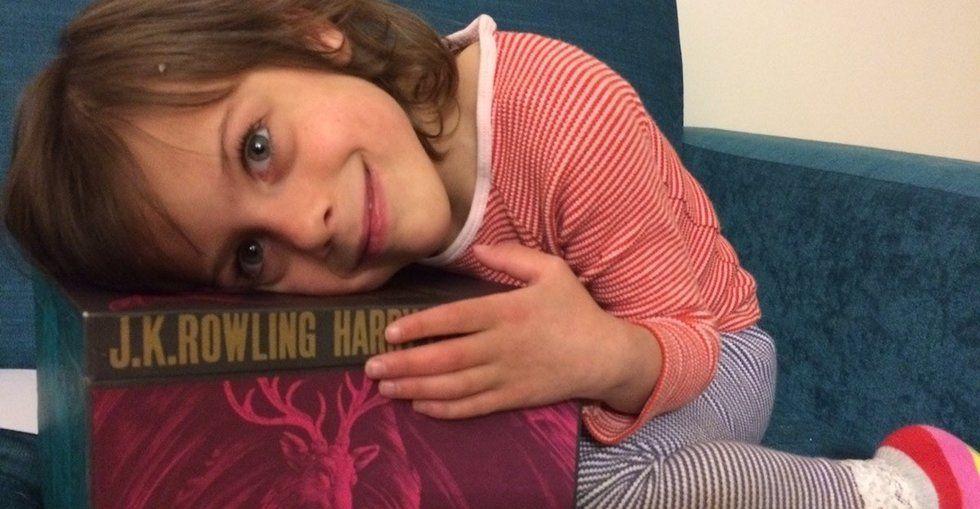
I opened the first book to the first page and read her what it said:
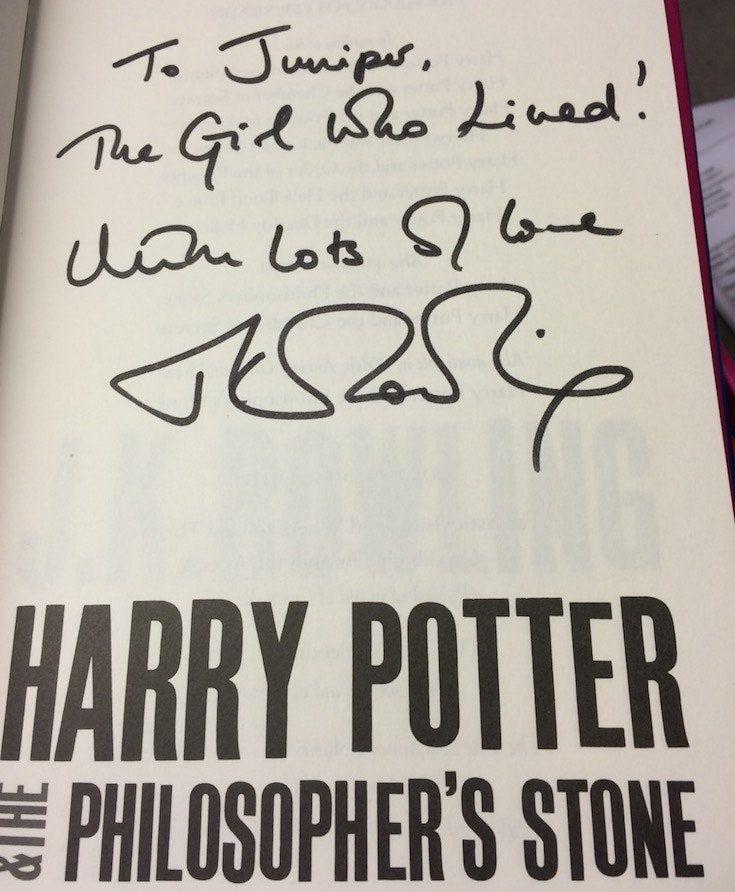
"To Juniper, The Girl Who Lived! With lots of love, J.K. Rowling."
A few months later, our own book was published. It tells the story of Juniper’s six months in that hospital, in that yawning neverland between the womb and the world. It’s about the science that made her possible and the love that saved her in the end.
Harry is in it, and Hermione and Ron and Ginny and Dobby and all the rest, because they were there with us as surely as the doctors and nurses and God himself.
When the book came out, we mailed one off to Scotland, to Rowling, signed by Juniper:
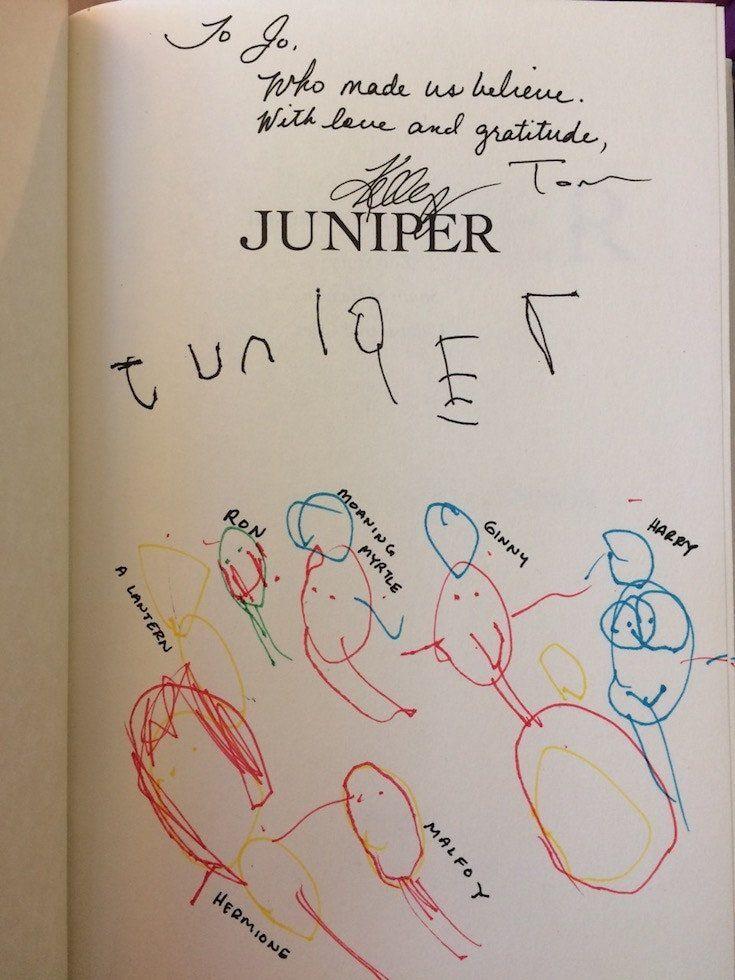
"To Jo, Who made us believe. With love and gratitude, Kelley, Tom, Juniper."
Now, our little girl sorts her chickens into the houses of Hogwarts. She voted for Hermione for president. At night, she tells me, she sees Hermione in her dreams.
Last night, we opened "Sorcerer’s Stone" and started the story all over again. This time, Juniper was old enough to follow every word.
Ahead of her lies the hippogriff and the golden snitch and the time-turner and a sprawling, dazzling world where girls are the smartest, the strangest people make the best friends, and you can’t judge someone until you see what they have seen. She will be reminded that no one gets through life alone, and children carry the strength inside them to right the world.
I hope she will remember that she has carried a bit of that magic with her, all this time.
